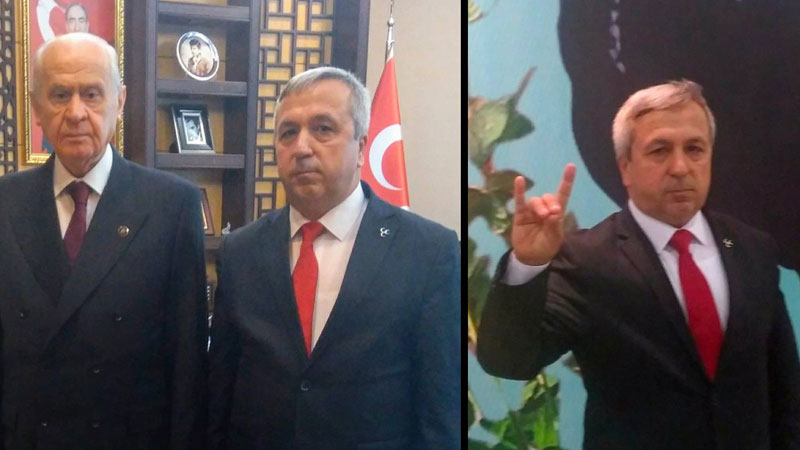A two-time parliamentary candidate from the far-right Nationalist Movement Party (MHP), an ally of President Recep Tayyip Erdoğan, has been arrested over alleged links to the faith-based Gülen movement, the T24 news website reported.
MHP member Mustafa Çintaş, a retired noncommissioned officer, was among 16 suspects who were detained for involvement in the Gülen movement’s alleged activities at the Land Forces Command, according to the report.
Çintaş was one of the MHP’s parliamentary candidates from the western province of İzmir in the 2015 and 2023 general elections.
The detentions were conducted as part of an investigation announced by the Ankara Chief Public Prosecutor’s Office in late April. The suspects were also accused of using pay phones to secretly communicate with their contacts in the Gülen movement.
The Gülen movement, inspired by Turkish cleric Fethullah Gülen, is accused by the Turkish government and Erdoğan of masterminding a failed coup on July 15, 2016 and is labelled a “terrorist organization,” although the movement denies involvement in the coup attempt or any terrorist activity.
The prosecutors assume that a member of the Gülen movement used the same payphone to call all his contacts consecutively. Based on that assumption, when an alleged member of the movement is found in call records, it is assumed that other numbers called right before or after that call also belong to people with Gülen links. Receiving calls from a payphone periodically is also considered a red flag.
After police interrogation, some of the suspects became informants, while Çintaş and others were arrested by a court.
Çintaş was one of the suspects named in the testimonies of several others who had previously been prosecuted in investigations into the Gülen movement across the country.
A special report obtained from the Financial Crimes Investigation Board (MASAK) as part of the investigation revealed that Çintaş had seven separate accounts at now-closed Islamic lender Bank Asya, affiliated with the faith-based movement.
The report said that by investing all his financial assets in Bank Asya, Çintaş gave the impression that he was acting in line with a call made by Islamic scholar Fethullah Gülen, whose views inspired the movement, to deposit money in the bank to help it survive government pressure.
The government took over Bank Asya on in February 2015, and its banking license was cancelled on July 22, 2016 — seven days after the coup attempt — by Turkey’s Banking Regulation and Supervision Agency (BDDK) because of its links to the movement. The banking watchdog ruled for the complete takeover of all shares of the Islamic lender by the Savings Deposit Insurance Fund (TMSF) in May 2015.
Thousands of people have faced terrorism charges and been jailed in Turkey since the coup attempt simply for their transactions at Bank Asya, which is considered a sign of terrorist organization membership by the Turkish authorities.
A landmark ruling in September by the European Court of Human Rights (ECtHR) found no criminal element in having an account at Bank Asya.
Following the coup attempt, the Turkish government declared a state of emergency and carried out a massive purge of state institutions under the pretext of an anti-coup fight. More than 130,000 public servants were summarily removed from their jobs for alleged membership in or relationships with “terrorist organizations” by emergency decree laws subject to neither judicial nor parliamentary scrutiny.
In addition to the thousands who were jailed, scores of other Gülen movement followers had to flee Turkey to avoid the government crackdown.
Turkish authorities routinely rely on witness statements as evidence to identify and prosecute members of the group.
The defendants in the trials against the movement are often encouraged to benefit from the country’s repentance laws allowing for reduced penalties in exchange for denouncing other members of the group.
In recent years, there have also been many reports about the alleged use of torture and ill-treatment in custody to coerce detainees into becoming informants and incriminating others.

